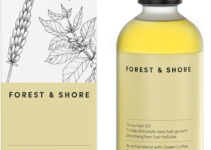Are you confused about the difference between keratin vs. relaxer?
When I was looking for treatments to tame curly hair, I also struggled to choose which one was the best solution for my hair type.
So, I spoke with several stylists to understand better keratin treatments and chemical relaxers, and I’m here to share my intel with you.
Just keep reading.
Table of Contents
Keratin Vs. Relaxer: What Are Their Differences?
Keratin treatments and relaxers differ in significant areas – how they work, how long they last, how expensive they are, and potential risks.
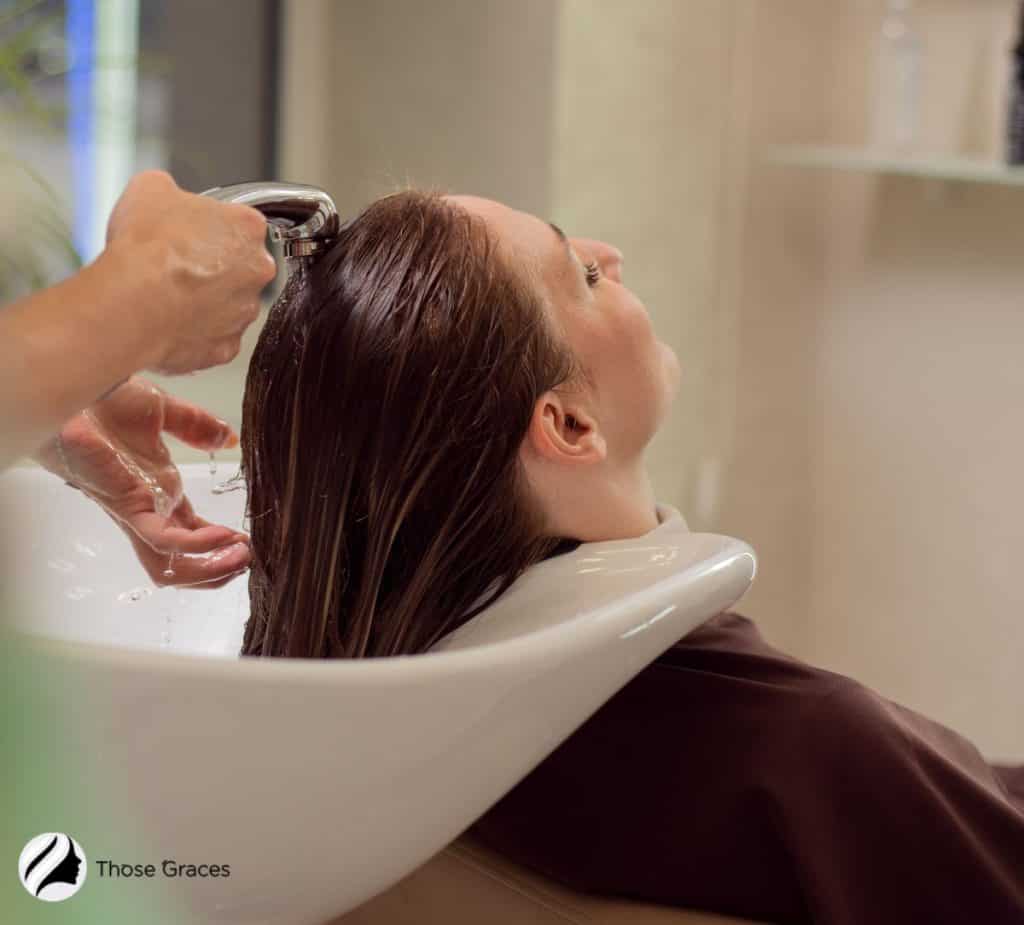
I’ll explain the differences to help you find the right solution for your curls. Or you can check this comparison table!
| Keratin Treatment | Relaxer | |
| How It Works | Seals the cuticles, eliminates frizz, and smooths the hair | Relaxes and re-forms the hair strands by disrupting the disulfide bonds |
| Time Required | From 90 minutes to four hours | 10-15 minutes |
| Hair Type | Suitable for all hair types | It depends on the type of relaxer |
| How Long It Lasts | Up to six months | Up to eight weeks |
| Aftercare Procedure | Depending on the type of keratin treatment, you may have to wait three days before you can wash/style your hair. | Avoid frequent hair washing. |
| Price | $250-$500 | $20 – $200 |
| Where | At a hair salon | At home/at a hair salon |
| Potential risks | Exposure to formaldehyde | Hair breakage/scalp irritation/ chemical burns |
Keratin Vs. Relaxer: How do They Work?
Hair is made of keratin, an essential protein necessary for keeping your hair healthy and preventing hair loss and damage. (1)
Keratin treatments use this essential protein in combination with a formaldehyde-releasing solution or other chemicals to change hair texture.
The treatment involves coating the hair strands with the keratin hair-straightening solution, then using a flat iron to seal it.
The process seals the hair cuticle and smooths frizzy hair. You can choose between several types of keratin treatments, depending on your natural hair texture, such as:
- Brazillian Blowouts/Brazilian keratin treatment
- Soft Keratin (eliminates frizz but allows you to keep your curls)
- Japzilian Keratin (combines Brazilian keratin with Japanese straightening)
- Keratin Express (comparing keratin express vs. keratin treatment, the express takes less time to apply but lasts only two months)
Watch this video to see keratin treatment procedures in action:
On the other hand, relaxers contain chemicals that break the disulfide bonds in the cortex layer. It allows you to relax and perform the hair strands straight.
Depending on the agent used, relaxers are lye-based (sodium hydroxide), no-lye (calcium hydroxide), or ammonium thioglycolate.
You can watch this video to see a relaxer salon treatment:
Elevate your hair care knowledge by checking out ‘Is shampoo or conditioner more important?’ – a must-read for anyone looking to optimize their hair care regimen!
Keratin Vs. Relaxer: Time Required
When I was getting my keratin treatment, it lasted about four hours since my hair was long and voluminous.
But it can be as short as two hours or 90 minutes if you have short hair or opt for keratin express treatment.
Keratin takes such a long time because the hairstylist has to shampoo and blowdry the hair, apply the keratin protein solution, and wait about 30 minutes before blow drying and flat ironing the hair.
Relaxers require less time – once you apply the solution, you must rinse it out with warm water after 10-15 minutes to avoid scalp irritation.
Then you wash your hair with a neutralizing shampoo and apply conditioners. So, you’ll be ready in 30 minutes.
Boost your hair care IQ by checking out my articles on ‘Dying Hair After Keratin Treatment‘, ‘Difference Between Chitin and Keratin‘, and ‘Keratin vs Collagen‘!
Keratin Vs. Relaxer: Hair Type
Keratin straightening is a great option for most types, suitable even for damaged or colored hair if you want to lock the color.
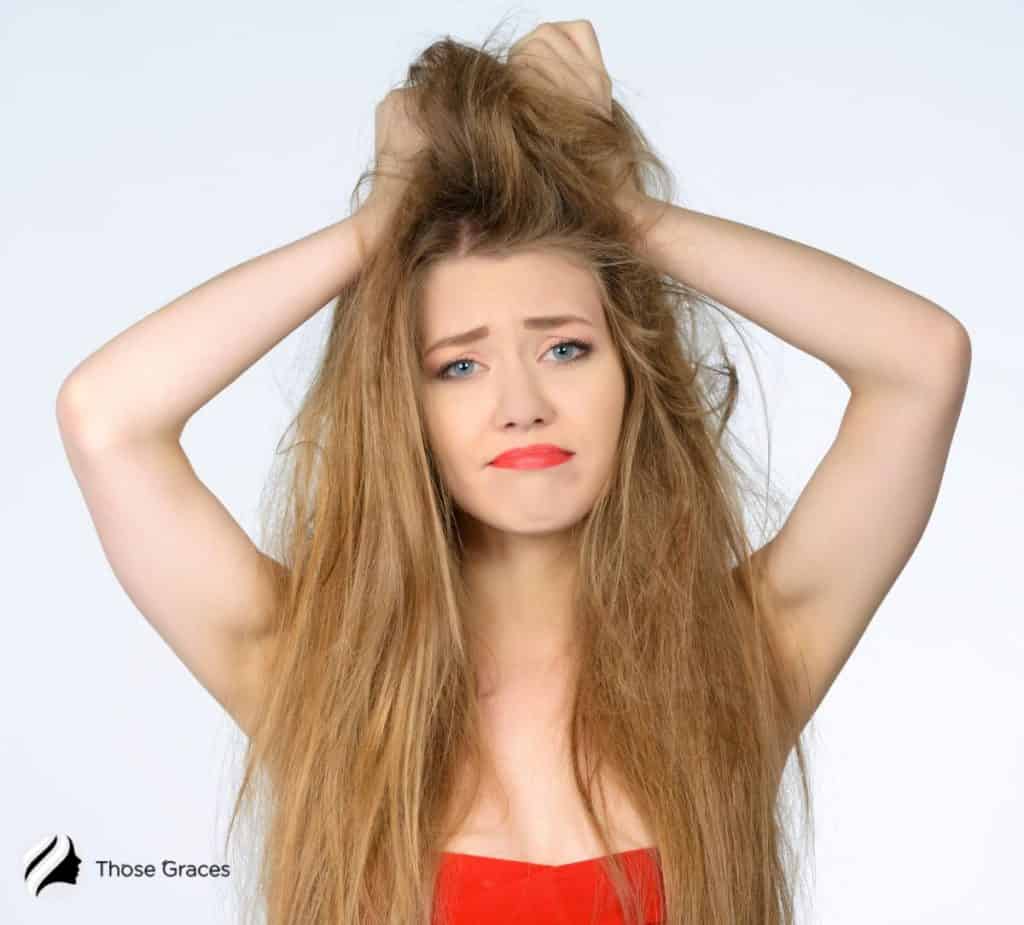
As hair stylist Henri Borday says, “Even if you have a good hair type, it still strengthens the hair shaft and makes your hair more resilient.” (2)
Lye relaxers are best for wavy, coily, or kinky hair, while no-lye relaxers are great for all hair types as long as you have healthy hair.
Since the chemical process involves breaking the hair’s natural structure to straighten it, relaxers aren’t the best for damaged or color-treated hair.
Keratin Vs. Relaxer: How Long They Last?
Keratin treatment can last up to six months.
Traditional relaxers last about 6-8 weeks, depending on your hair type and how quickly your relaxed hair grows.
Keratin Vs. Relaxer: Aftercare Procedures
Your hair will need special care whether you’re using keratin or relaxers.
After a keratin treatment, don’t wash or style your hair for about three days, or your hair will return to its original appearance. Use sulfate-free shampoo and avoid chlorinated water.
If you relax your hair, wait one week between each washing to keep your beautiful shine and avoid dry hair.
Use deep or leave-in conditioners to moisturize the scalp, and don’t use heat styling.
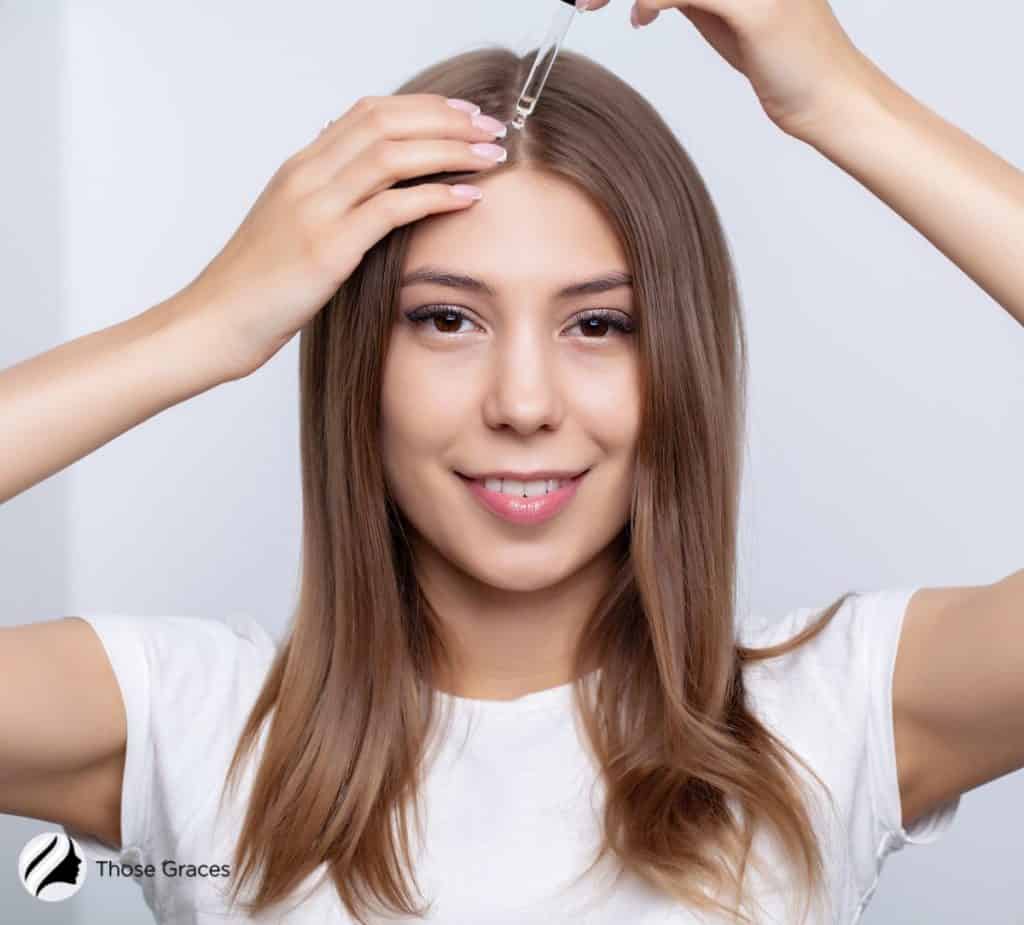
Also, it would be best if you didn’t wash or shampoo your scalp several days before your relaxer procedure to prevent hair breakage and damage.
Here is a cool video on the differences between the two:
https://www.tiktok.com/embed/v2/6860237995660922118?lang=en-US&referrer=https%3A%2F%2Fwww.instraight.com%2Fkeratin-vs-relaxers%2F
Keratin Vs. Relaxer: Price
Relaxing is relatively cheap. You can do it at home for about $20 or $200 at the salon.
But are keratin treatments expensive? Depending on your hair volume and length, keratin straightening costs an average of $250 to $500.
Keratin Vs. Relaxer: Where You Can Do It
Relaxers are easy to do at home. I followed the instructions and managed to relax my hair with minimal effort.
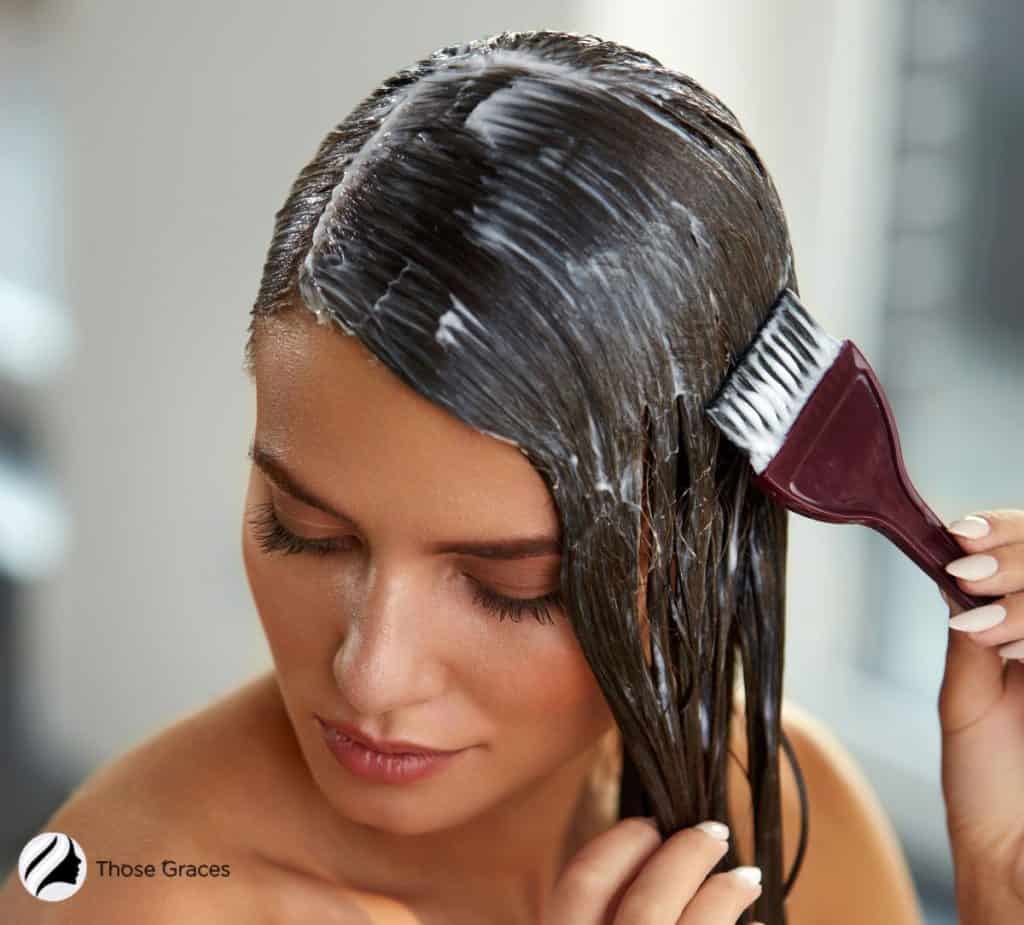
At-home keratin treatments are harder to do and won’t be as effective or long-lasting as the professional keratin treatments you can get at a reputable salon.
So, if you want the best results when taming your curls, you should leave it to professional hairstylists.
Keratin Vs. Relaxer: Potential Risks
Both keratin and relaxers are chemical treatments that disrupt your hair’s natural texture and can have adverse effects.
Formaldehyde is a cancerogenic element, and even exposure to low levels of formaldehyde can lead to sore throat, skin irritation, burning sensation, coughing, etc. (3)
The harsh chemicals in relaxers can lead to brittle hair, chemical burns, dandruff, and thin hair. And they’re bad for people with sensitive scalps.
Pregnant women should avoid both options.
Keratin Or Relaxer: Which Is Best?
Comparing keratin vs. relaxers, I prefer keratin for the following reasons:
- It lasts longer than relaxing.
- It doesn’t damage the hair over time or cause side effects, primarily if you use formaldehyde-free keratin treatments.
- It works well for all hair types and can nourish damaged hair.
- It’s cheaper in the long run.
However, relaxers are a great option if you’re looking for a quick and cheap way to manage your natural curls or have straighter hair without going to the hair salon.
FAQs
Is Keratin Good For Relaxed Hair?
Can You Get A Relaxer And Keratin Treatment?
Is Keratin A Chemical Relaxer?
How Long Does The Keratin Relaxer Last?
Is Keratin Or Collagen Better For Hair?
Conclusion
In the keratin vs. relaxer debate, the keratin treatment is the winner because it’s not as damaging for your hair as relaxers and can last half a year when done right.
But both methods have the same effect – smooth, straight hair, free of frizz, perfect for people that want to reduce time managing unruly hair.
Just remember to consult with an experienced stylist beforehand.
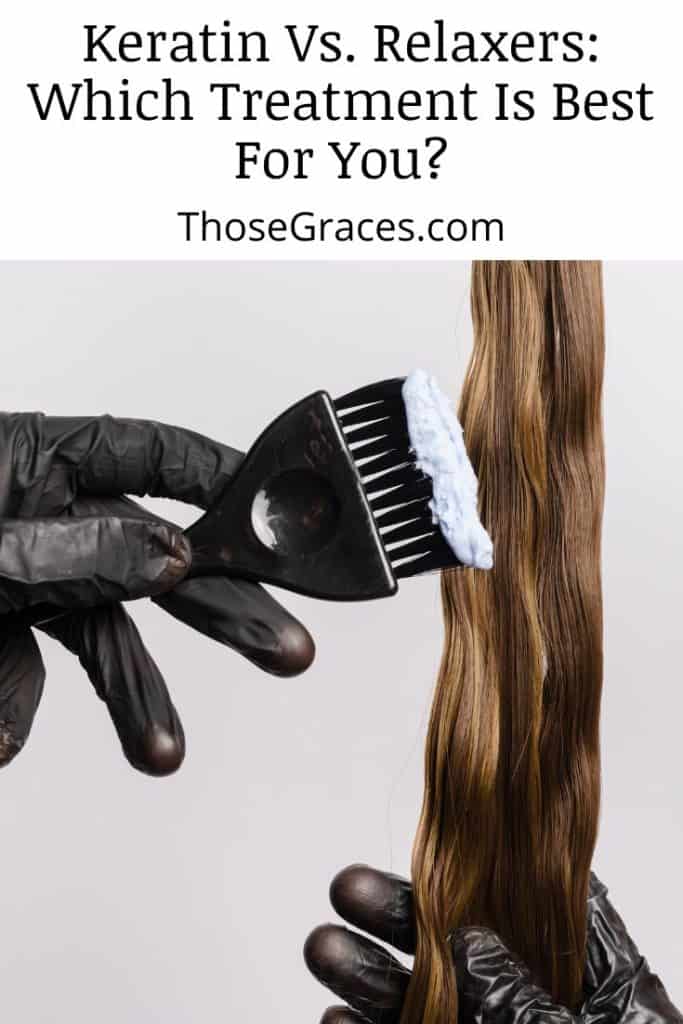
What do you think about keratin vs. relaxers? Which one do you use to manage your hair? Please share your experience with us in the comment section.
Resources:
- 1. Keratin: Benefits and Uses for Hair. Healthline. Published 2018. https://www.healthline.com/health/keratin
- 2. Mann D. Keratin Hair Straightening Treatments: Benefits and Effects. WebMD. Accessed September 6, 2022. https://www.webmd.com/beauty/features/keratin-hair-straightening-treatments
- 3. Formaldehyde – Cancer-Causing Substances. National Cancer Institute. Published February 14, 2019. https://www.cancer.gov/about-cancer/causes-prevention/risk/substances/formaldehyde

